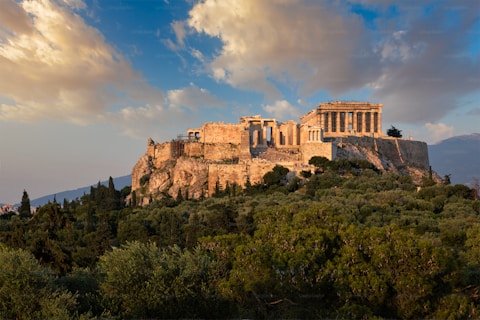Eating in Santorini, re-defined
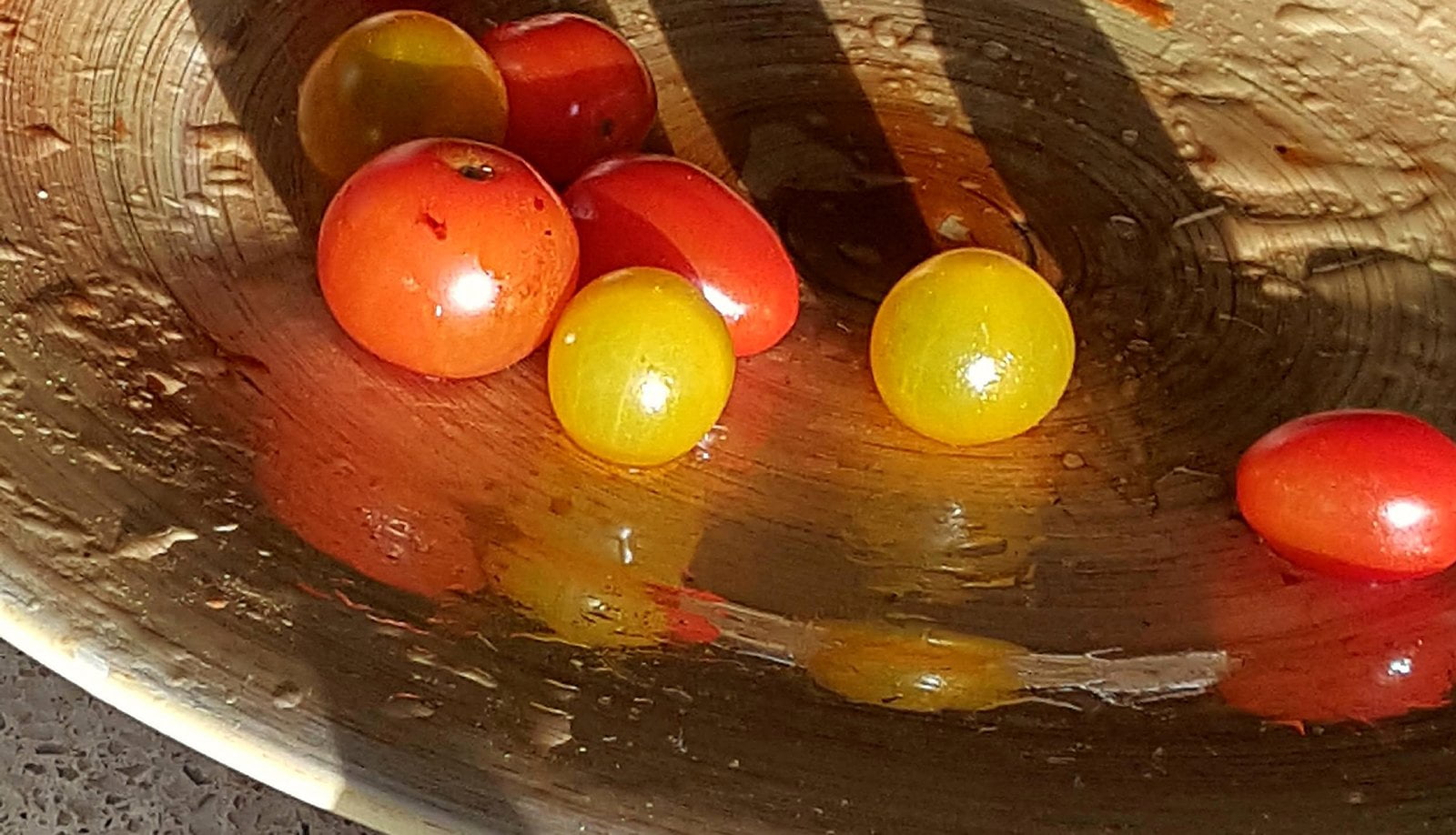
Santorini, because of its special volcanic soil and climate, offers some pretty unique tastes. Apart from its world-famous grapes and wines, the rare combination of such soil with the very low annual precipitation, gives us the miniature zucchinis, the small white eggplants, the flavorsome capers and the famous cherry tomatoes and split peas the island is proud of.
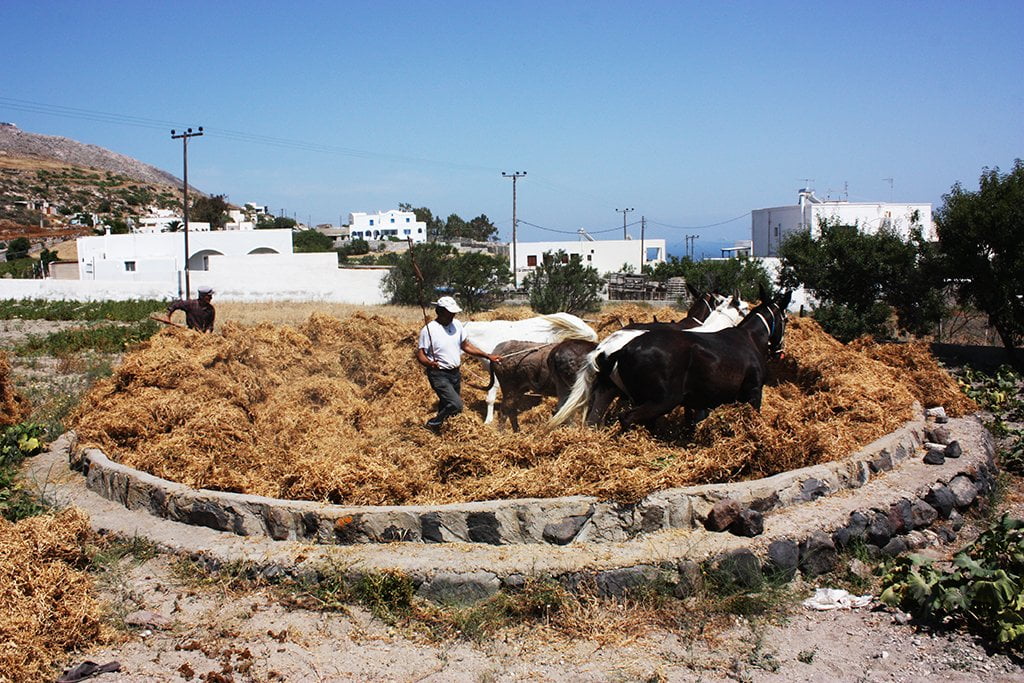
Threshing of Fava Photo Credit: Klearchos Kapoutsis
Smaller size with concentrated flavor
Generally speaking, everything that grows on Santorini is smaller – less water – with a more concentrated flavor and usually more tender and easier to cook than normal. Due to the lack of timber, until the 60’s when electricity reached the island, the locals traditionally avoided cultivating hard-to-cook vegetables. Santorini’s soil and lack of firewood is responsible for the quality of the split peas which the island exports all over the world. The inhabitants favored it mainly because it was easy to boil. Nowadays it is a food with a Protected Designation of Origin trademark.
Ask your guide to recommend a place where split peas is served and order its classic version with raw onions, Santorini capers and extra-virgin olive oil. Only then will you know why award-winning chefs around the world would give an arm for raw materials sourced from this little island in the Aegean. Another thing to note is that all menus mention tomato- or zucchini-balls (fritters) – they are traditional Santorini dishes. And it would be better to try out these products at the farm where they are produced. Their taste and smell will make a lasting impression which will accompany you in the future.
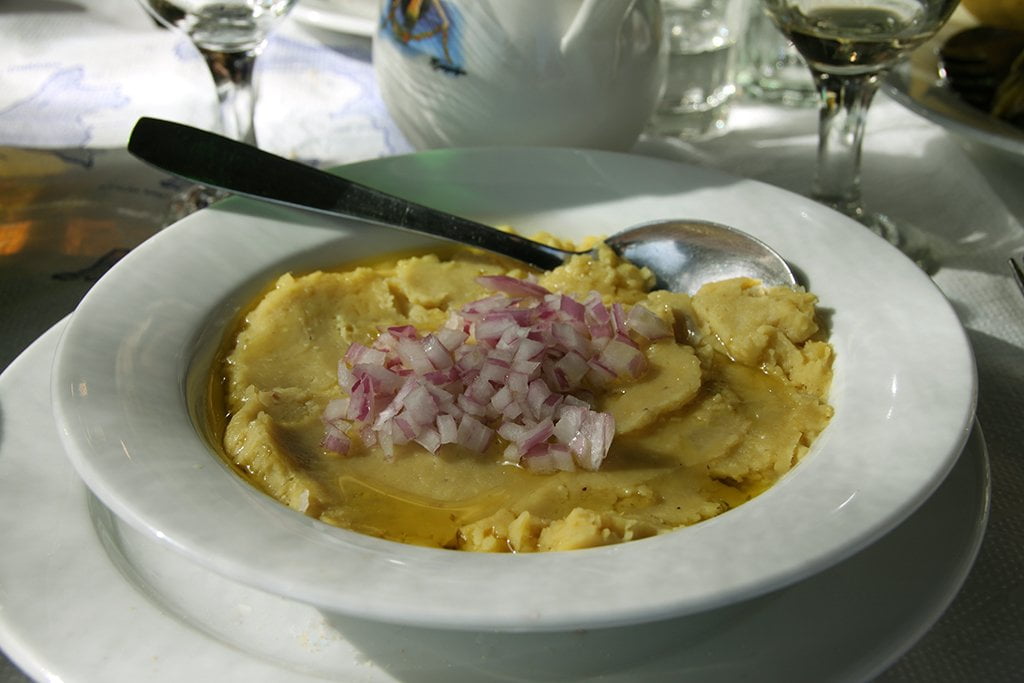
Fava or split peas of Santorini Photo Credit: Klearchos Kapoutsis
The sun-dried Santorini cherry tomato
The necessities of pre-refrigeration life on the island also gave birth to special food-treatment techniques aimed at the preservation of the summer produce for consumption during the harvest-poor winter. Various pickles, condiments and preserves form a big part of local food production, among which the sun-dried Santorini cherry tomato Reigns king.
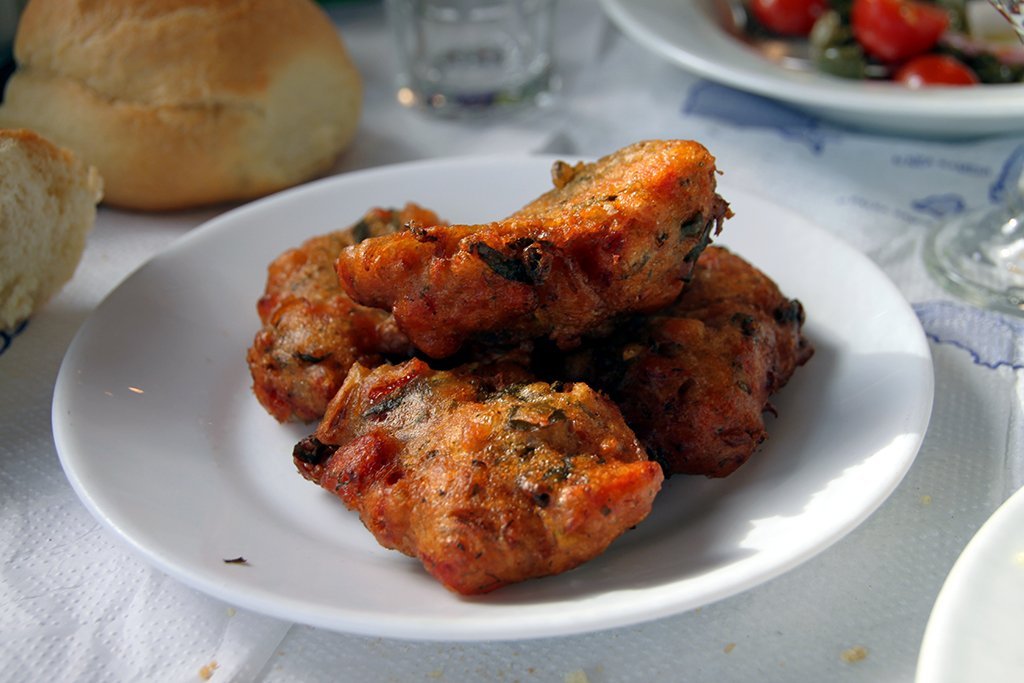
Tomato-balls or fritters Photo Credit: Klearchos Kapoutsis
The stories behind this little precious tomato are numerous. Some say that centuries ago it was a catholic monk that brought this kind of small tomato to the island. Some others say that local sailors that carried special volcanic soil for the construction of the Suez Canal tasted these small tomatoes there and brought some back. No matter which story’s version is the correct one, the only sure thing is that the villagers – that had never tasted tomatoes of any size before – liked this little red sweet delicacy so much that they tried as hard as they could to help the little plant adapt to the harsh place they lived. The plant in returned the favor by developing even smaller fruits – to become more resilient – but with stronger taste and aroma.
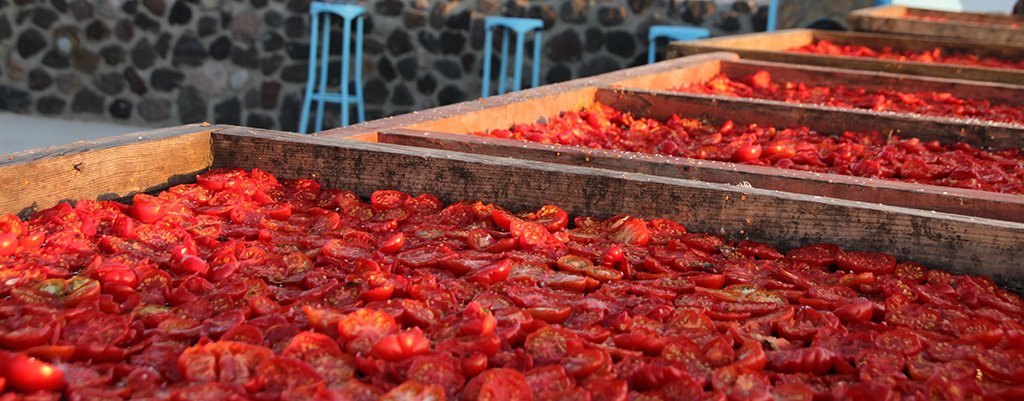
Sun-dried tomatoes Photo Credit: Klearchos Kapoutsis
These small tomatoes got so famous that up to 10 little local factories exported canned cherry tomatoes, before the 1956 earthquake destroyed much of the production and facilities.
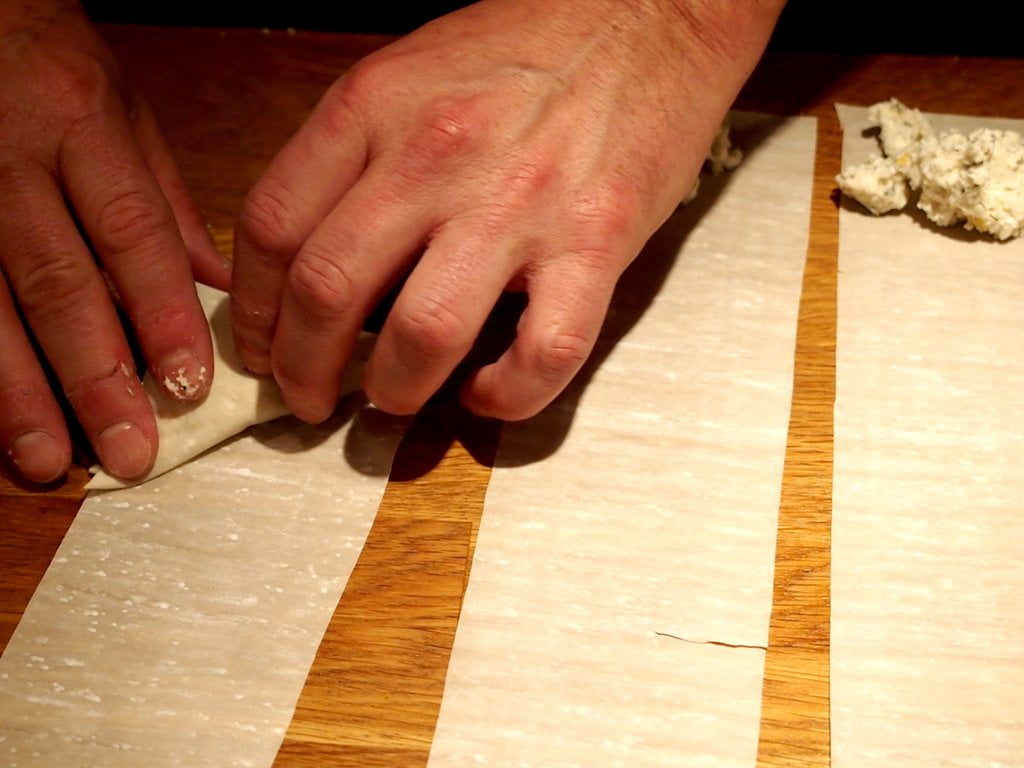
Cooking lesson Photo Credit: Greece Insiders
Cooking lesson of local dishes
But if you really want to take a piece of the taste of the island with you there is only one way to do it. Learn to cook like a local. Forget all you know about typical cooking lessons with pretentious chefs and austere disciplined lessons. This culinary experience is fun and tasty. Picture yourself in a restored, old, traditional cave-house in a village. The lady of the house welcomes you with some local wine and appetizers. She shows you around her kitchen and together you cook local dishes with local materials. You don’t just get to learn how to cook and all the little secrets around each recipe – you experience the way people of all ages and walks of life get together around food and wine, to enjoy life in the particular way that has been described and celebrated since the age of Homer.
If you wish to book a cooking lesson, please send us an email at hello@greeceinsiders.travel and we will arrange it for you!
Feeling Ready?
From our blog
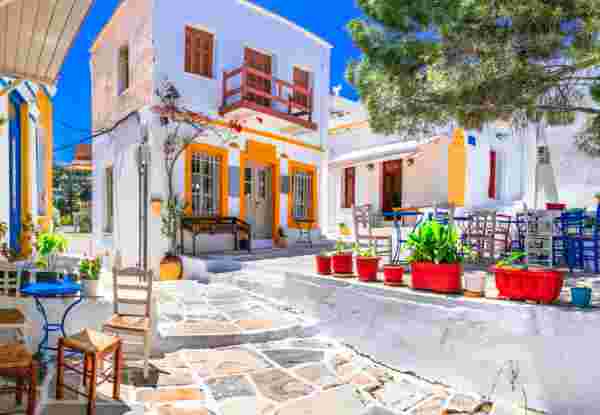
Honeymoon in Paros Island Ultimate: Guide
READ MORE
Ultimate Rome Travel Guide: What to See and Do
READ MORE
The Best Greek Islands for Couples, According to a Luxury DMC
READ MORE
Discover Milan: Top Attractions
READ MORE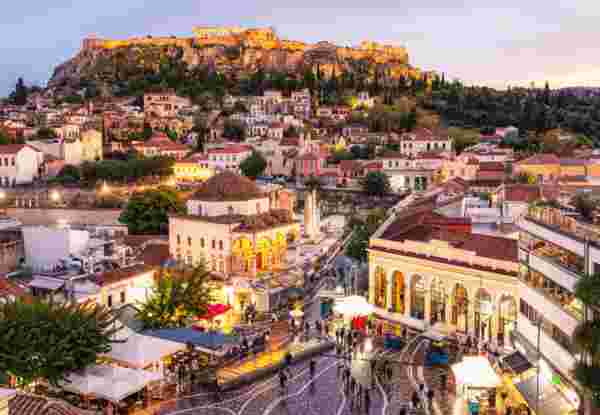
Athens in February Travel Guide
READ MORE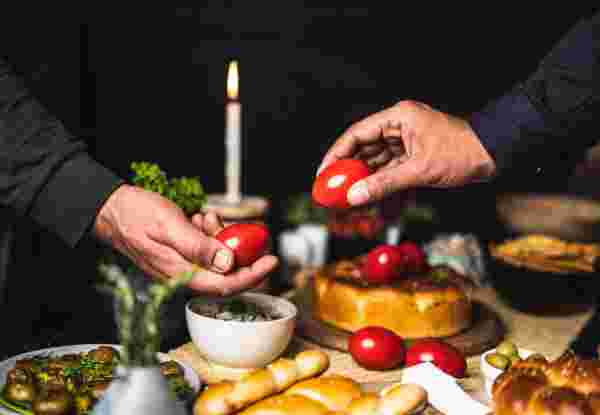
When Is Easter 2026? Dates from 2026 to 2030
READ MORE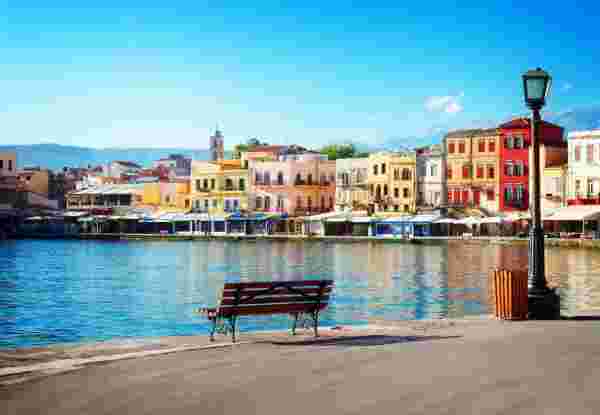
Crete 2025 Travel Guide
READ MORE
How Many Days in Mykonos
READ MORE
Santorini Travel Guide: Everything You Need to Know
READ MORE
